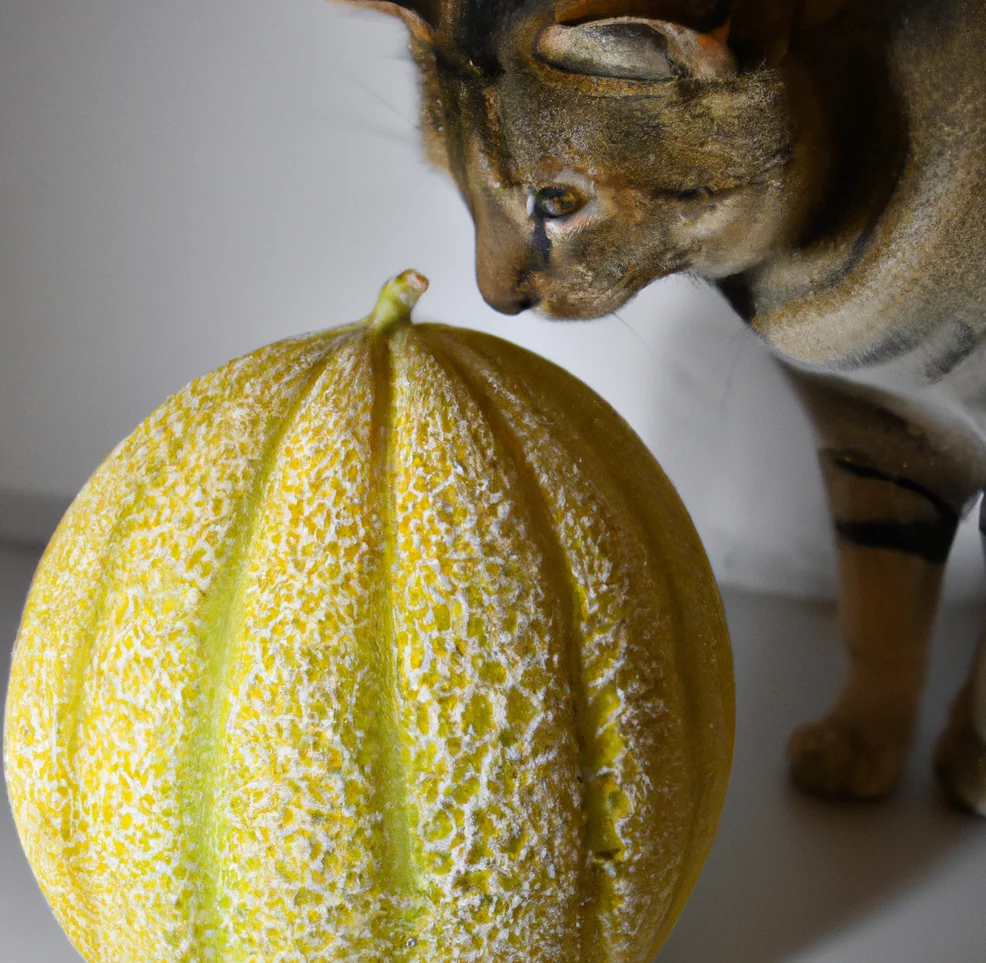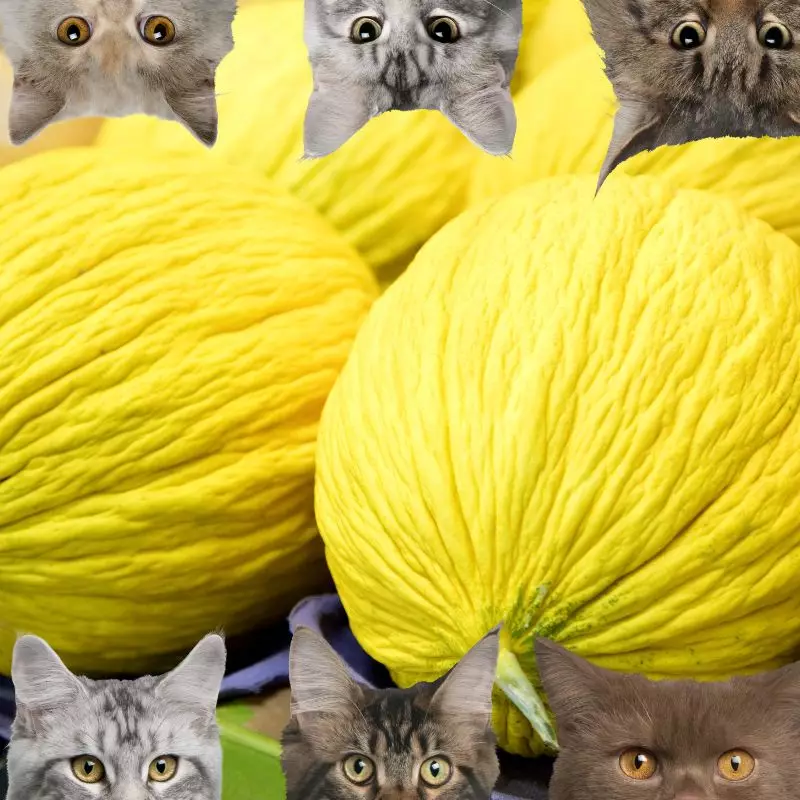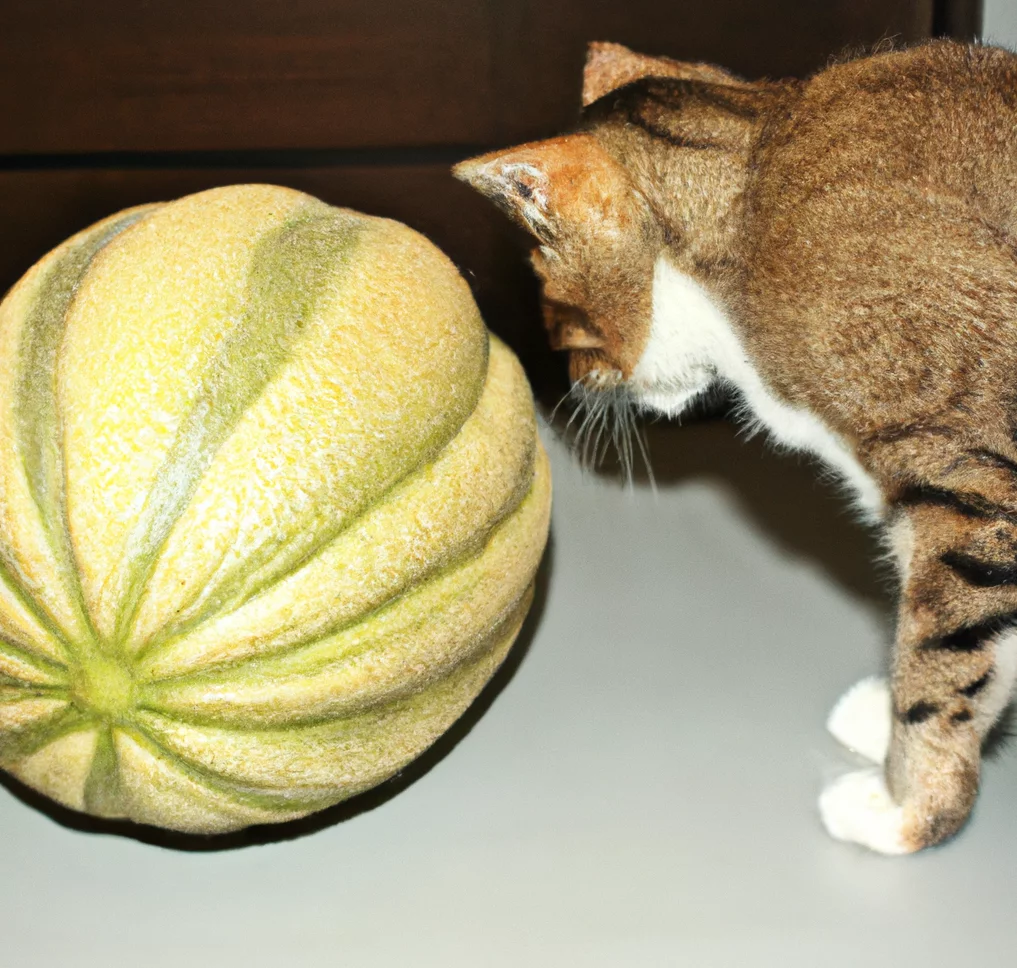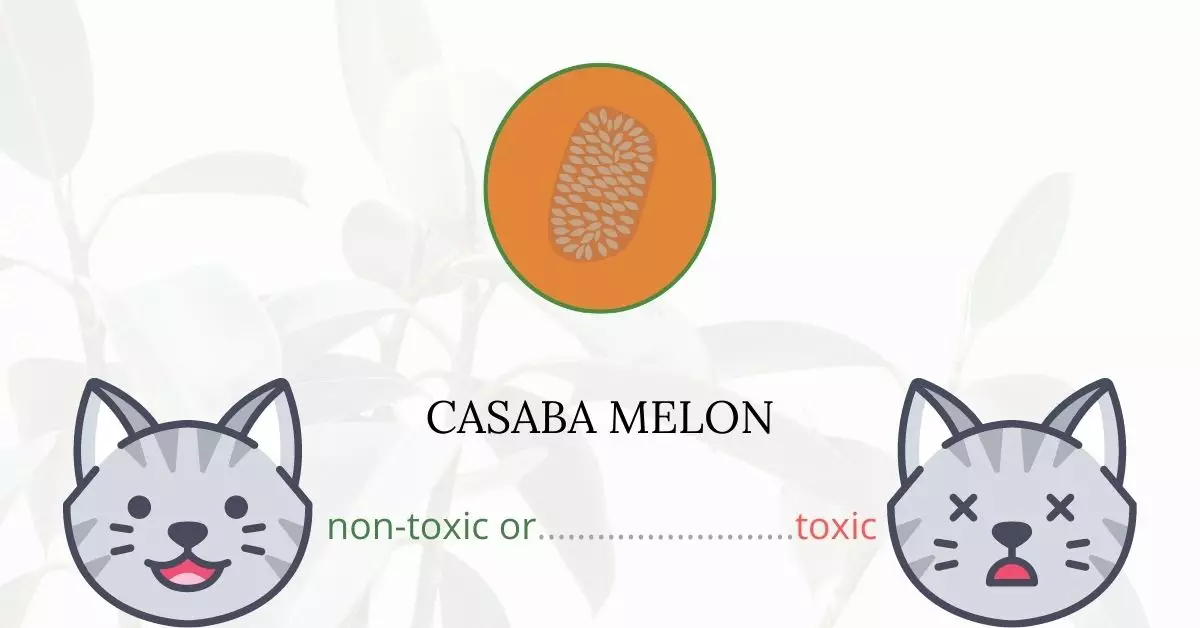No, Casaba melon and honeydew melon are not toxic for cats.
This article is the product of a collaboration with a team of experienced DVMs (doctors of veterinary medicine). Thanks to their expertise, we’re able to present accurate and up-to-date information on the potential risks and benefits associated with various plants, specifically Casaba Melon in this context. Our findings are reinforced by thorough research from high-authority sources such as the ASPCA and PetMD.
While honeydew melon offers numerous health benefits to humans, its advantages for cats are somewhat limited. The primary benefit for our feline friends is hydration, as honeydew melons are composed of roughly 90% water, rich in electrolytes. While cats may gain some nutritional value from the vitamins, minerals, and antioxidants present in honeydew, they thrive best on a diet tailored specifically for them.
Can Cats Eat Casaba Melon or Honeydew Melon?

If your cat is interested in your honeydew melon, you’re probably wondering if it’s okay for them to eat. The good news is that honeydew is entirely safe for cats to consume.
However, before offering honeydew to your cat, keep in mind that it contains a lot of fiber, which can cause stomach problems. Many fruit seeds contain traces of harmful substances like cyanide, so remove them. Large portions can choke your cat, so mash it up or cut it up into small bits.
What is Casaba Melon or Honeydew Melon?

Casaba melons range in size from 3 to 8 pounds and come in a variety of shapes, including round, oval, and acorn-shaped varieties. The stem end of the melons taper to a point, and the rind is thick, strong, and smooth, textured with longitudinal furrows, wrinkles, and folds. Each melon has its own distinct appearance, with uneven wrinkles that vary based on growing conditions and variety.
When ripe, the rind also changes color from green to golden yellow with green undertones. Casaba melons, botanically classified as Cucumis melo var. inodorus belongs to the Cucurbitaceae family. It is available from late summer to early winter.
Melons are grown in both hemispheres, allowing for year-round availability. These oddly shaped and brightly colored melons, which grow on trailing vines and require at least one hundred frost-free days to mature, are a variety of winter melon.
Experts say Casaba melons are native to Persia and have been farmed for thousands of years. In the United States, Casaba melons are grown in the Imperial Valley, a region in Southern California that runs parallel to the Mexican border.
Keeping Cats Away From Casaba Melon or Honeydew Melon

Your cats may be tormenting your plants out of boredom. Keeping your cats away from your plants will not only protect them, but it will also prevent your plant from potential damage caused by your cat. Outside activities should be limited to keep your cat safe from possibly toxic and hazardous plants.
Keep your cats mentally busy and engaged indoors to lessen the chances of their straying.
Plants to Avoid For Your Cats
If you are a cat owner and unsure if the plants growing in your yard are harmful to your cats, check out this list of toxic plants for cats. You can also check our list of non-toxic plants for cats.





